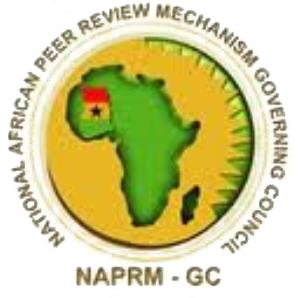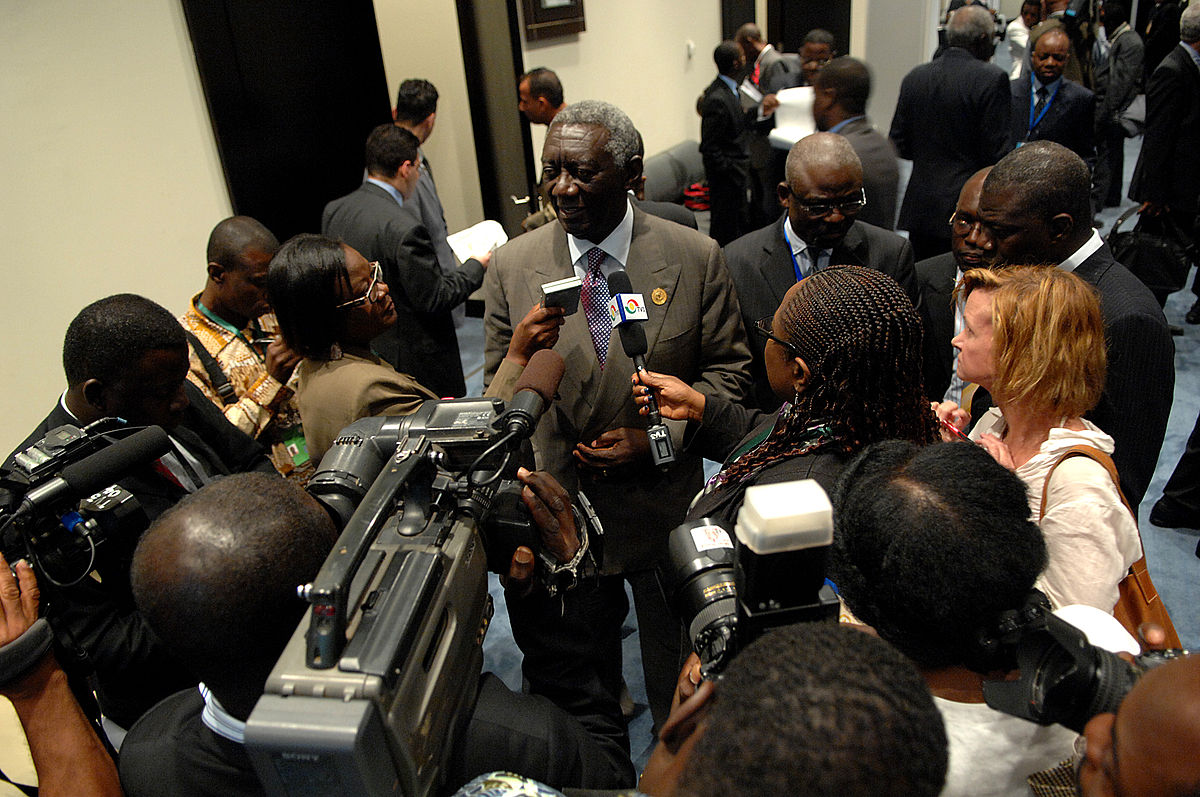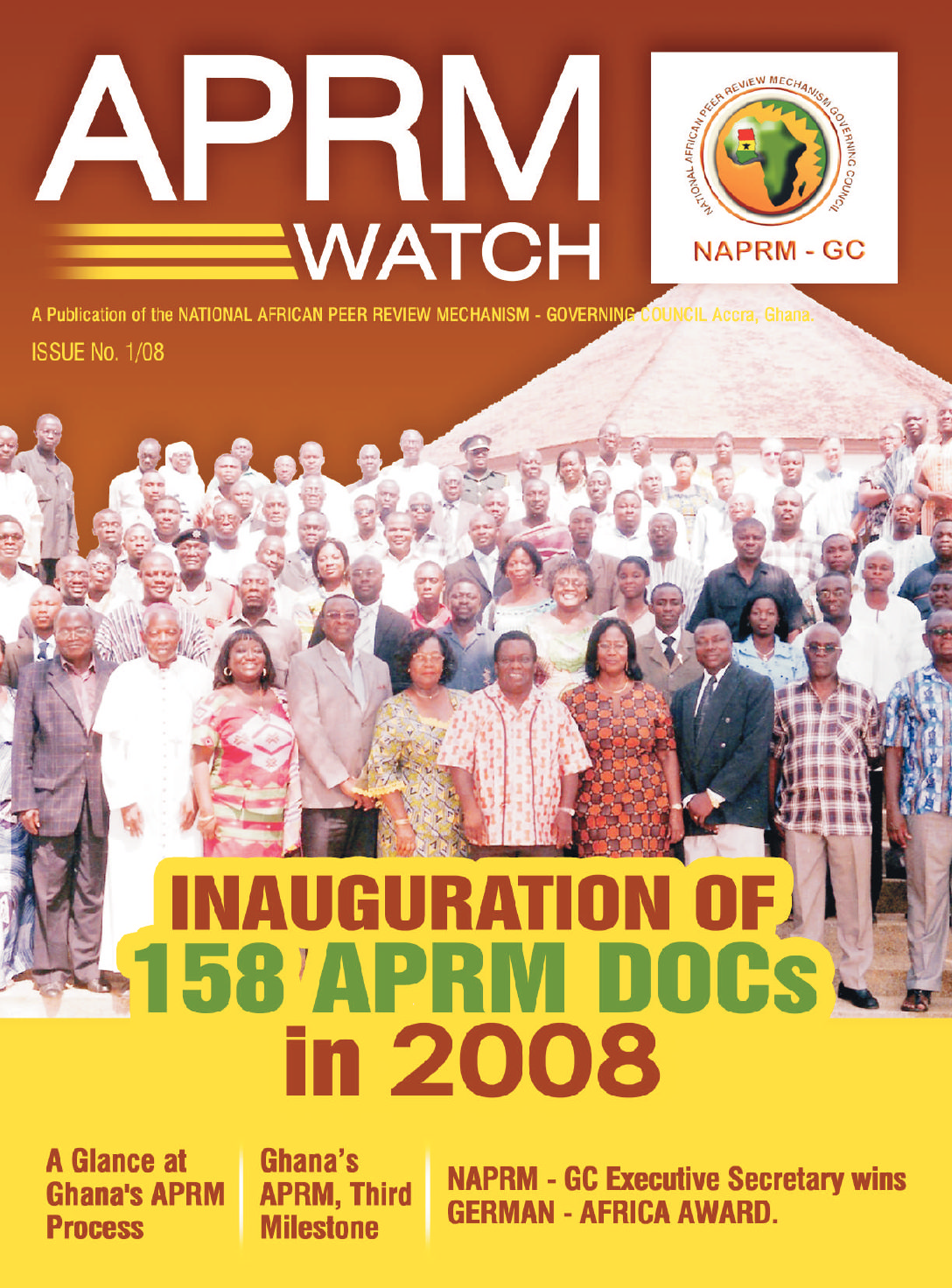A five-member delegation from the APRM Commission of Mali has paid a two-day working visit to Ghana’s APRM Governing Council in Accra. Ambassador Alex Ntim Abankwa, welcomed the delegation on behalf of the chairman, Rev. Prof S.K. Adjepong, and the Governing Council.
The delegation was led by Mr. Ousmane Diallo, President of the APRM Commission of Mali. Also present were the Vice President Madame Ossada Fatima Traore, Mr. Sekou Traore, Madame Krotumu Nyang, Mr. Daouda Konney and Mrs Elma Frank of the Hann Seidel Foundation. Ambassador Abankwa briefed the delegation on Ghana’s journey through her accession to the APRM in 2003 and her peer review in January 2006.
He explained the criteria used for the selection of the seven-member Council. He added that the independence, professionalism, objectivity and their ability to reach across all stakeholders ensured the credibility of the process.
He explained the rationale behind the establishment of the District Oversight Committees in all 170 districts of the country. He indicated that this was in line with the decentralization process and also to improve ownership and participation of ordinary citizens in the APRM process. This, he added, is helping to empower grassroots participants to play a lead role in the governance process.
Ambassador Abankwa indicated that Ghana has shared this decentralization concept with counterparts from Burkina Faso, Benin, Uganda, Sierra Leone as well as some international organizations. Mr. Ousmane Diallo recalled the strong ties between Ghana and Mali and acknowledged Ghana’s pioneering role in the APRM. He said Mali is preparing her first APRM progress report and is therefore happy to share in the commendable practices and guidance from Ghana.
Members of the Mali APRM also held discussions with the National Commission for Civic Education (NCCE) and the National Development Planning Commission (NDPC) which are integral partners of the NAPRM-GC. Mrs. Fanny Kumah as the National Director for Literature and Materials Development, NCCE, recounted the establishment and responsibilities of the NCCE. She highlighted the Citizen Project for second cycle schools which is aimed at educating Ghanaians to be responsible and active citizens. Mr. Kenneth Owusu of the NDPC explained the processes Ghana undertook to merge its APRM National Program of Action (NPoA) with the Growth and Poverty Reduction Strategy (GPRS II) and how the unimplemented activities were rolled onto the current Ghana Shared Growth and Development Agenda.
The delegation also visited the Gomoa West district of the Central Region to interact with the District APRM Oversight Committee (DOC). The chairperson, Dr. Mark Nii Lamptey outlined the committee’s nomination and selection processes, composition of membership and operational guidelines. He stressed that the DOC was constituted taking into cognizance the gender-sensitive and non-partisan nature of the APRM. He enumerated a number of activities that the DOC had undertaken, including sensitization of citizens on the principles of the APRM, engagement with traditional authorities, tertiary institutions, second cycle institutions, the District Assembly and other stakeholders on the relevance of the APRM in the attainment of good governance.
The DOC chairman mentioned effective collaboration with the District Assembly and commended the Gomoa East District Chief Executive, Mr. Theophilus Aidoo Mensah for his commitment to the cause of the APRM and the Assembly’s consistent financial support to promote DOC activities.
The chief of Apam, Nana Adu Efrim, indicated the need for a common language in Africa to facilitate effective discussion and operations of initiatives like the APRM to promote unity and advancement. He stated that the uniqueness of the Gomoa East APRM District Oversight Committee and its achievements is indicative of the understanding and appreciation of the APRM by the DCE and the Assembly.
Members of the Mali APRM Commission thanked the Gomoa West DOC for the quality presentation and the great strides made. Mr. Diallo said the Malian delegation will leave Ghana with abundant knowledge and deep appreciation of Ghana’s remarkable experience in the APRM.


 newsletter-compressed
newsletter-compressed